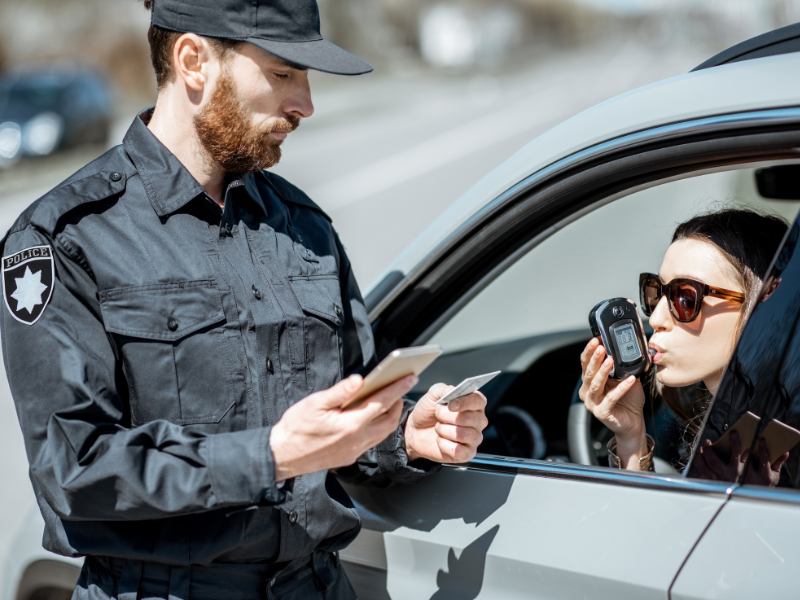Many drivers believe that refusing a test will help them avoid a DUI conviction and in general that is true. In Virginia, however, refusing a breathalyzer test can have serious consequences, as the state’s implied consent law makes it clear that refusal comes with automatic penalties. In other words, when a driver operates a vehicle on most (but not all) Virginia roads, they automatically consent to chemical testing if they are lawfully arrested for suspicion of DUI. This means that after an arrest based on probable cause, refusing to submit to a breathalyzer test is not without consequences. While refusal often works in the driver’s favor, it also has consequences it is important to be aware of. such administrative license suspension and the fact that it can be used as evidence in a DUI case. Suppose you were stopped for suspicion of DUI in Virginia. In that case, it is crucial to understand your rights and the legal implications of refusing a breathalyzer, and you should speak to an attorney as soon as possible.
Virginia’s Implied Consent Law
Under Virginia’s implied consent law, any driver lawfully arrested for DUI is required to take a breath or blood test if they were operating their vehicle on a public highway. This law applies only after a lawful arrest, meaning the officer must have probable cause that the driver is impaired. Refusing a breathalyzer test in Virginia triggers an automatic license suspension if the driver is convicted and can be used against the driver in court. Unlike a preliminary breath test conducted roadside before an arrest, which a driver can refuse without legal penalty, the official post-arrest breath test carries significant consequences for refusal.
Conviction for refusing a breathalyzer test results in immediate administrative penalties and possible criminal charges for repeat offenses. The severity of the penalties depends on whether it is a first or subsequent refusal. A first-time refusal is classified as a civil offense and carries a one-year driver’s license suspension with no eligibility for a restricted license for the first 30 days. A second offense within ten years is considered a Class 1 misdemeanor, resulting in a three-year license suspension, a possible jail sentence, and fines up to $2,500.
Additionally, refusal to submit to a breathalyzer test can be introduced as evidence in a DUI trial and courts may interpret refusal as an indication that the driver knew they were intoxicated. With that said, a driver is never required to comply with field sobriety tests, a preliminary breath test, or answer questions beyond identifying themselves. Similarly, while there are consequences of refusal to keep in mind, if there is any doubt about whether a driver is impaired, it is safest to refuse.
Rights During a DUI Stop
Understanding the distinction between a preliminary breath test and a post-arrest breathalyzer test is essential. A preliminary breath test is conducted before an arrest to establish probable cause, and drivers can legally refuse this test without immediate penalties. However, refusal may still contribute to the officer’s decision to arrest. The post-arrest breathalyzer test, conducted after a lawful DUI arrest, carries automatic penalties under Virginia law. Drivers should always remain respectful and compliant during a traffic stop but must understand their rights regarding chemical testing.
How Crowley Peritz Law Can Help
If you refuse a breathalyzer test, you need a skilled DUI defense attorney to challenge the charges and mitigate potential penalties. At Crowley Peritz Law, we have over 30 years of combined experience handling DUI and breathalyzer refusal cases in Northern Virginia. Our attorneys thoroughly analyze each case and develop tailored defense strategies to protect our client’s rights.
Defending against breathalyzer refusal charges requires a strategic approach. Improper police procedures can be a strong defense if law enforcement fails to follow proper protocols during the arrest. If an officer did not have reasonable suspicion for the initial stop or probable cause for the arrest, the case may be dismissed. Another defense involves challenging the reliability of breathalyzer devices, as these machines require proper maintenance and calibration. Any issues with the testing equipment can cast doubt on the validity of the charges.
Why Choose Crowley Peritz Law?
When facing breathalyzer refusal charges, having an experienced attorney on your side can make all the difference. At Crowley Peritz Law, we provide comprehensive DUI defense, leveraging our deep understanding of Virginia DUI laws to build strong defense strategies. Our firm is dedicated to personalized legal representation, limiting our caseload to ensure every client receives individualized attention and aggressive advocacy. Our attorneys have a proven track record of success, helping clients avoid harsh penalties, secure reduced charges, and, in some cases, get cases dismissed altogether.
A DUI or breathalyzer refusal charge can have long-term consequences, affecting your driving privileges, employment opportunities, and personal reputation. That is why it is critical to seek legal counsel immediately.
Take the Next Step
If you are facing a DUI or breathalyzer refusal charge in Virginia, time is of the essence. Early intervention by an experienced attorney can significantly impact the outcome of your case. At Crowley Peritz Law, we are committed to protecting your rights and helping you navigate Virginia’s DUI laws.
Contact us today for a confidential consultation. Our Fairfax-based firm proudly serves clients throughout Northern Virginia, offering aggressive representation and dedicated legal advocacy. Reach out via our online form or call us at (703) 337-3773 to schedule an appointment.



























